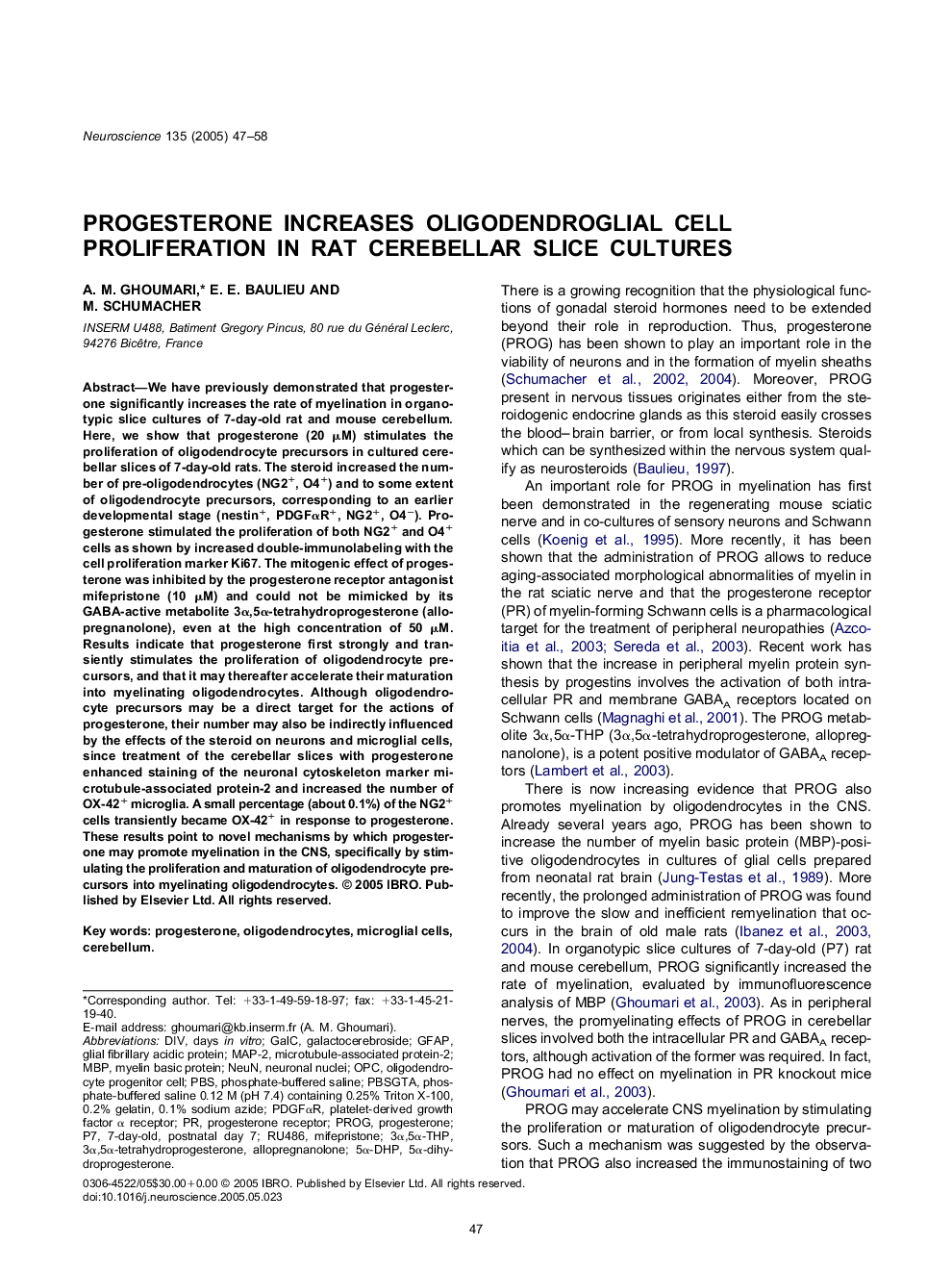| Article ID | Journal | Published Year | Pages | File Type |
|---|---|---|---|---|
| 9425754 | Neuroscience | 2005 | 12 Pages |
Abstract
We have previously demonstrated that progesterone significantly increases the rate of myelination in organotypic slice cultures of 7-day-old rat and mouse cerebellum. Here, we show that progesterone (20μM) stimulates the proliferation of oligodendrocyte precursors in cultured cerebellar slices of 7-day-old rats. The steroid increased the number of pre-oligodendrocytes (NG2+, O4+) and to some extent of oligodendrocyte precursors, corresponding to an earlier developmental stage (nestin+, PDGFαR+, NG2+, O4â). Progesterone stimulated the proliferation of both NG2+ and O4+ cells as shown by increased double-immunolabeling with the cell proliferation marker Ki67. The mitogenic effect of progesterone was inhibited by the progesterone receptor antagonist mifepristone (10μM) and could not be mimicked by its GABA-active metabolite 3α,5α-tetrahydroprogesterone (allopregnanolone), even at the high concentration of 50μM. Results indicate that progesterone first strongly and transiently stimulates the proliferation of oligodendrocyte precursors, and that it may thereafter accelerate their maturation into myelinating oligodendrocytes. Although oligodendrocyte precursors may be a direct target for the actions of progesterone, their number may also be indirectly influenced by the effects of the steroid on neurons and microglial cells, since treatment of the cerebellar slices with progesterone enhanced staining of the neuronal cytoskeleton marker microtubule-associated protein-2 and increased the number of OX-42+ microglia. A small percentage (about 0.1%) of the NG2+ cells transiently became OX-42+ in response to progesterone. These results point to novel mechanisms by which progesterone may promote myelination in the CNS, specifically by stimulating the proliferation and maturation of oligodendrocyte precursors into myelinating oligodendrocytes.
Keywords
PDGFαRPBS3α,5α-THPGFAPMBPRU486PROGOPCMifepristoneMAP-25α-DHPNeuN5α-dihydroprogesteroneDIVdays in vitroMicroglial cellsOligodendrocyte progenitor cellPhosphate-buffered salineCerebellumneuronal nucleiGlial fibrillary acidic proteinmicrotubule-associated protein-2Myelin basic proteinProgesteronegalactocerebrosideGalCProgesterone receptoroligodendrocytes
Related Topics
Life Sciences
Neuroscience
Neuroscience (General)
Authors
A.M. Ghoumari, E.E. Baulieu, M. Schumacher,
